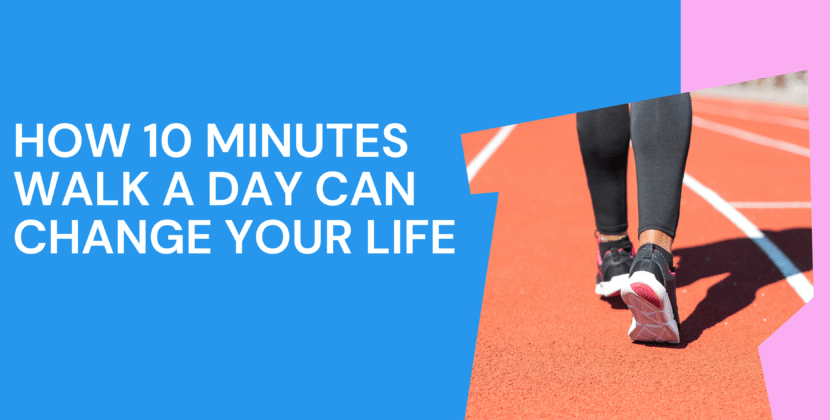
What Are Some Modern Lifestyle Habits That Can Improve Overall Well-Being Without Major Life Changes?
Hey! Want to know how some easy-peasy habits can improve your lifestyle and boost your overall well-being—without flipping your life upside down? You’re in the right place. Below are seven science-backed, low-effort lifestyle habits that can make a real difference to your physical and mental health. These tips are especially relevant for readers in the United States, where busy schedules, digital overload, and chronic stress are all too common.
Let’s get started!
1. Morning Sunlight for Energy and Mood
Kicking off your day with a dose of natural sunlight does wonders for your circadian rhythm and mood. According to the National Institutes of Health (NIH), exposure to natural morning light helps regulate your sleep-wake cycle, increase serotonin levels, and boost alertness throughout the day.
How to Do It:
- Step outside for 10–15 minutes within an hour of waking up.
- Open your curtains wide if you’re indoors.
- Walk your dog or sip coffee on the porch.
Bonus: It may help reduce seasonal affective disorder (SAD), especially in states with long winters like Minnesota or Michigan.
2. Stay Hydrated for Better Health
Dehydration is sneakier than you think. According to the CDC, even mild dehydration can impair mood, concentration, and physical performance. In the US, where sugary drinks are prevalent, water often takes a backseat.
How to Do It:
- Aim for at least 8 cups (64 oz) of water daily.
- Use a reusable bottle with ounce markers.
- Add lemon or cucumber if plain water bores you.
Pro Tip: Hydration needs vary depending on climate and activity level. If you’re in Arizona or Texas, you’ll need even more!
3. Short Meditation Breaks for Mental Relief
You don’t have to sit cross-legged for an hour to benefit from meditation. Even a 5-minute mindfulness session can significantly reduce stress levels and improve focus.
How to Do It:
- Use apps like Calm, Headspace, or Insight Timer.
- Try deep breathing exercises while sitting at your desk.
- Practice box breathing (inhale-4, hold-4, exhale-4, hold-4).
According to a Harvard Medical School study, consistent mindfulness practice can positively impact anxiety and emotional regulation.
4. Gratitude Practice for Positivity
In a world full of comparison traps and social media envy, practicing gratitude can rewire your brain for happiness. According to research from UC Berkeley, gratitude journaling increases optimism, improves relationships, and supports mental health.
How to Do It:
- Write down 3 things you’re grateful for each morning.
- Use a dedicated gratitude journal or a note app.
- Say thank you to someone in person or by message.
Fun Fact: Gratitude is linked to better heart health and sleep quality—no major lifestyle overhaul required!
5. Digital Detox for Better Sleep
Too much screen time, especially before bed, disrupts melatonin production and sleep quality. A Sleep Foundation survey found that 70% of Americans use phones in bed, leading to poor sleep and reduced next-day productivity.
How to Do It:
- Turn off screens at least 30–60 minutes before bed.
- Use “Night Shift” or “Blue Light Filter” settings.
- Keep devices out of the bedroom if possible.
Alternatives: Try reading a physical book, stretching, or journaling instead.
6. Walking and Movement for Physical Health
Movement doesn’t have to mean intense gym sessions. Walking is one of the most accessible, low-impact forms of exercise and offers major health benefits.
How to Do It:
- Take 10-minute walks after meals (especially great for blood sugar control).
- Use the stairs instead of the elevator.
- Join a local walking group or challenge on apps like Strava.
According to the American Heart Association, just 150 minutes of moderate activity per week can reduce your risk of heart disease, stroke, and type 2 diabetes.
7. Prioritize Sleep for Recharge
Sleep is your body’s natural reset button. Yet, about 1 in 3 Americans doesn’t get enough of it, according to the CDC. Prioritizing sleep can improve memory, mood, immune function, and more.
How to Do It:
- Aim for 7–9 hours of sleep per night.
- Stick to a consistent sleep-wake schedule.
- Make your bedroom cool, dark, and quiet.
Sleep Hacks: Weighted blankets, white noise machines, and blackout curtains can enhance your rest.
Small Habits, Big Impact
The beauty of these habits is that they require minimal effort and no drastic lifestyle changes. Whether you’re a college student, a busy parent, or a full-time professional in the US, incorporating just a few of these modern habits into your daily routine can lead to a noticeable boost in your well-being.
They’re simple, science-backed, and sustainable.
Take Action: Start Small Today
Ready to feel more energized, focused, and emotionally balanced? Pick one habit from the list above and give it a try today. Don’t wait for the perfect moment—your well-being journey starts now!
Liked this post?
- Leave a comment below and share your favorite habit.
- Subscribe to our newsletter for more health tips.
- Bookmark this article and revisit your progress each week!












